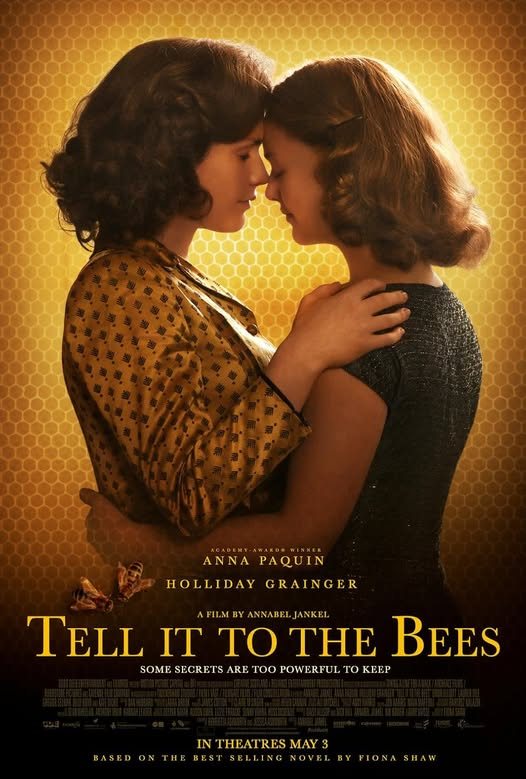Tell It to the Bees (2018)

Tell It to the Bees (2018) is a beautifully crafted period drama that explores love, secrecy, and societal prejudice in post-war Scotland. Directed by Annabel Jankel and based on the novel by Fiona Shaw, the film delicately balances romance with themes of oppression and resilience.

Plot Overview
Set in 1950s Scotland, the story follows Dr. Jean Markham (Anna Paquin), a compassionate yet reserved woman who returns to her hometown to take over her late father’s medical practice. When she befriends Charlie (Gregor Selkirk), a young boy struggling with his troubled home life, she soon becomes entangled in the life of his mother, Lydia (Holliday Grainger).
As Lydia faces abandonment and financial struggles, she finds solace in Jean’s kindness. Their friendship gradually blossoms into a tender romance, but in a conservative society where same-sex relationships are taboo, their love is met with hostility and danger. Amidst it all, Charlie confides his secrets to the bees in Jean’s garden, believing they carry his words to the world.
Performances & Emotional Impact
Anna Paquin delivers a subtle yet deeply moving performance as Jean, portraying her internal conflicts with grace. Holliday Grainger shines as Lydia, bringing both strength and vulnerability to the role. Their chemistry is heartfelt and natural, making their love story all the more powerful. Gregor Selkirk, as young Charlie, adds an innocent perspective that ties the narrative together beautifully.
Cinematography & Atmosphere
The film’s cinematography is soft and melancholic, capturing the picturesque yet isolating Scottish countryside. The use of natural lighting and muted colors enhances the film’s period setting, creating a visually rich and immersive experience. The symbolism of the bees adds an almost magical element, reinforcing themes of communication, freedom, and hidden truths.
Themes & Social Commentary
Beyond romance, Tell It to the Bees tackles issues of homophobia, gender roles, and class struggles in a rigid post-war society. It highlights the harsh reality of women’s limited choices during that era, making Jean and Lydia’s love story not just about passion but about survival and defiance.










